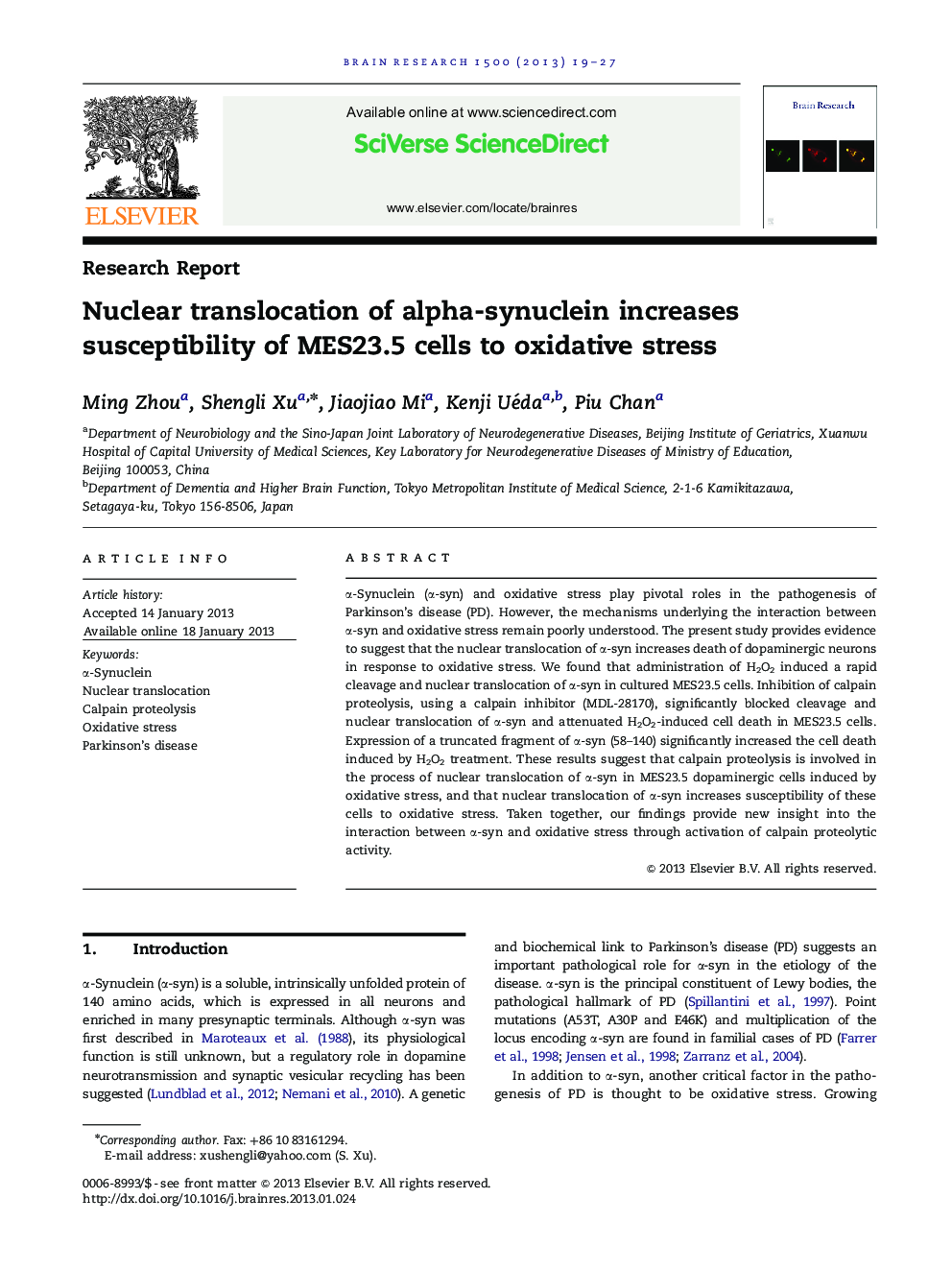| کد مقاله | کد نشریه | سال انتشار | مقاله انگلیسی | نسخه تمام متن |
|---|---|---|---|---|
| 4324801 | 1613939 | 2013 | 9 صفحه PDF | دانلود رایگان |

α-Synuclein (α-syn) and oxidative stress play pivotal roles in the pathogenesis of Parkinson's disease (PD). However, the mechanisms underlying the interaction between α-syn and oxidative stress remain poorly understood. The present study provides evidence to suggest that the nuclear translocation of α-syn increases death of dopaminergic neurons in response to oxidative stress. We found that administration of H2O2 induced a rapid cleavage and nuclear translocation of α-syn in cultured MES23.5 cells. Inhibition of calpain proteolysis, using a calpain inhibitor (MDL-28170), significantly blocked cleavage and nuclear translocation of α-syn and attenuated H2O2-induced cell death in MES23.5 cells. Expression of a truncated fragment of α-syn (58–140) significantly increased the cell death induced by H2O2 treatment. These results suggest that calpain proteolysis is involved in the process of nuclear translocation of α-syn in MES23.5 dopaminergic cells induced by oxidative stress, and that nuclear translocation of α-syn increases susceptibility of these cells to oxidative stress. Taken together, our findings provide new insight into the interaction between α-syn and oxidative stress through activation of calpain proteolytic activity.
► Oxidative stress induced a nuclear translocation of α-syn.
► The translocated protein was a C-terminus of α-syn.
► Activated calpain induced by oxidative stress cleaved full-length α-syn, and generated the C-terminus.
► The nuclear translocation of C-terminus enhanced the susceptibility of dopaminergic neuronal cells to oxidative stress.
► The mechanism may have a pathologic role in the selective and progressive loss of nigral dopaminergic neurons in PD.
Journal: Brain Research - Volume 1500, 15 March 2013, Pages 19–27